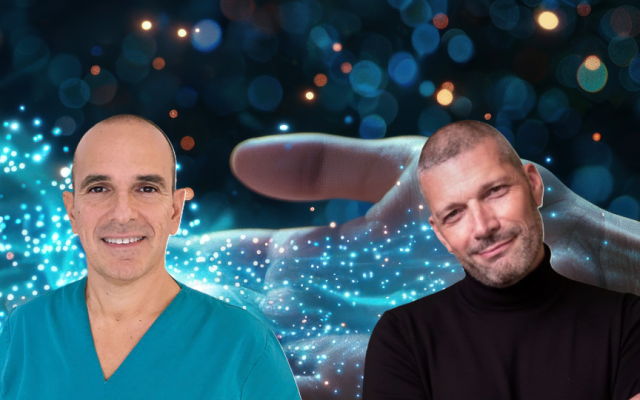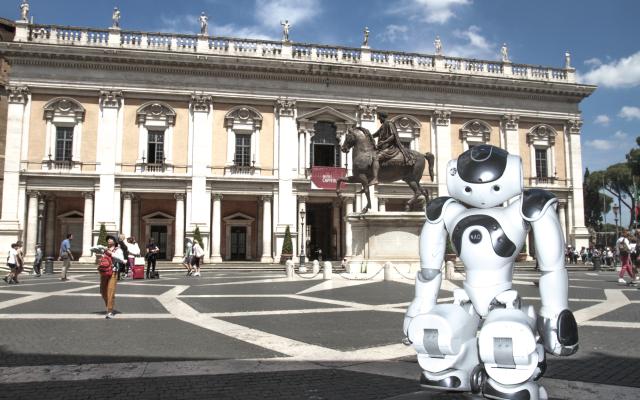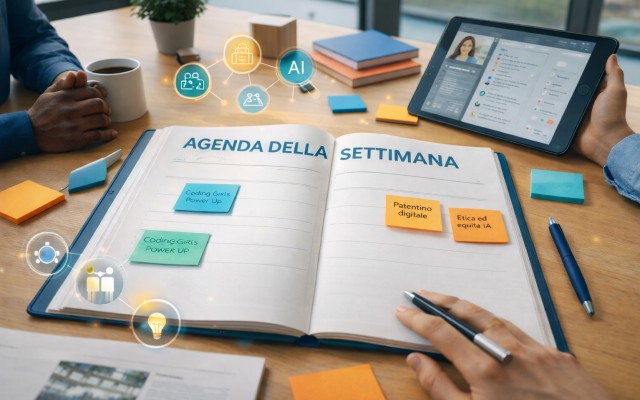A project by Tommaso Caligari
We continue to study the various projects that were submitted to the various creative contests at RomeCup 2024.
Project Parkinson Detector for the early diagnosis of the disease was submitted by Tommaso Caligari, a student at Itis Omar in Novara, to the HealthBot creative contest, one the novelties introduced by the fourth edition of Factor J, a project promoted with Johnson & Johnson Innovative Medicine Italia [see news: Pharmabot Wins the HealthBot Contest].
Parkinson Detector uses artificial intelligence to identify humans in a video and calculating the position of their joints, moment after moment, precisely measuring the limb movement angles. The objective is to recognize significant differences in gait kinematics compared to normal values extrapolated from specialist literature. The device uses two cameras positioned at the sides of a room and an AI system to monitor shoulder and elbow oscillation as the patient walks. Numerous scientific studies have in fact shown that the reduction of this oscillation is an early indicator of Parkinson's disease.
INTERVIEW WITH TOMMASO
What fascinates you about the world of technology and artificial intelligence?
What fascinates me about technology is the innovation it brings with it, the possibility of tackling old and new problems with tools and solutions yet to be discovered and invented. So, it's a field where I can channel all my creativity. I like the innovative approach of artificial intelligence to problem-solving "by approximation" based on previous experiences and models. It fascinates me that it can uncover very complex correlations that may escape the human mind. It is not self-aware, it does not know it is making a mistake, but it remains a very powerful tool at our service.
Why did you decide to participate in the project and what did you like about the journey with Factor J and HealthBot?
I decided to participate in this project because I am deeply interested both in technology and medicine and I believe that artificial intelligence can play a crucial role in improving diagnosis, especially early diagnosis. Parkinson's disease is a complex condition that can be difficult to diagnose early, and I felt that developing an AI device to assist doctors could make a significant difference in the lives of patients, including my grandfather, who suffered from it for many years. This competition provided me with the opportunity to present my project to a jury of experts, who could concretely evaluate my work.
How do you think your project can improve patients' lives?
The fact of being able to simplify an early diagnosis of a disease can have a therapeutic importance in light of the emerging "predictive medicine" that aims to provide targeted treatments even before the symptoms of the disease appear to slow down or stop its onset or progression. Simplicity, low cost, and speed of use are also factors that contribute to improving the quality of life of patients and of health operators.
Looking to the future, how do you think the world of health will change and how do you expect treatment to evolve?
I expect a growing integration of AI technology in the health sector to support and assist doctors in various clinical aspects, ranging from diagnosis to treatment and patient follow-up. Also, in light of the new European rules on AI, I expect that it will be used to support doctors, for example, for blind controls on exams, to recognize particularly complex clinical situations, or to speed up critical aspects of the decision-making process; NEVER, however, to replace humans who must not only have the last word but must also not be misled by biased models.
How do you believe new technology will influence your professional future?
I honestly hope that my professional future will be able to influence new technology and not vice versa. I mean that those who work on the development of new technology are projected towards an increasingly innovative, updated, and high-performance version of current technology that is rapidly becoming outdated. Just look at the history of computers, microprocessors, memory, or mobile phones. Approximately every 18 months, as per Moore's Law, computing, and memory, along with the writing and reading speed of media, have doubled. New technology ages very quickly, at least in proportion to how good we are at designing new ones.
INTERVIEW WITH PROF. GIANCARLO PORZIO
How is teaching changing thanks to new technologies?
It is certainly changing for the better, allowing students to be more active than in the past. Their involvement is greater, as is collaboration amongst students.
What role should health-related topics have in student education?
An integrated role, when possible, with other technical-scientific aspects related to the school’s programmes.
Why did you decide to propose Health Bot to your students?
The “Parkinson Detector” Project created by Tommaso best captures the spirit of the HealthBot Contest. The affordability of the product together with the data processing power can represent a turning point in the diagnosis of this and other diseases.
What role can school have in spreading greater awareness on health and new technology?
A key role, but specific training is necessary to make the most of new technology, as well as an open channel with universities and companies to intercept emerging needs.
Reflecting on science and medicine, what impact will innovation have on patient care in the future?
I believe the personalization of treatment represents the most important aspect to increase the effectiveness of therapies and the expectancy and quality of life of humans.
Why did you choose to work on the project, introducing students to Artificial Intelligence and especially the medical field? Why did you choose to create this type of prototype? Is there a particular story behind it that you would like to tell us?
Actually, Tommaso worked on the project independently based on the experience of his grandfather's illness. His passion, combined with his great technical skills, allowed him to create a prototype with incredible diagnostic potential.



